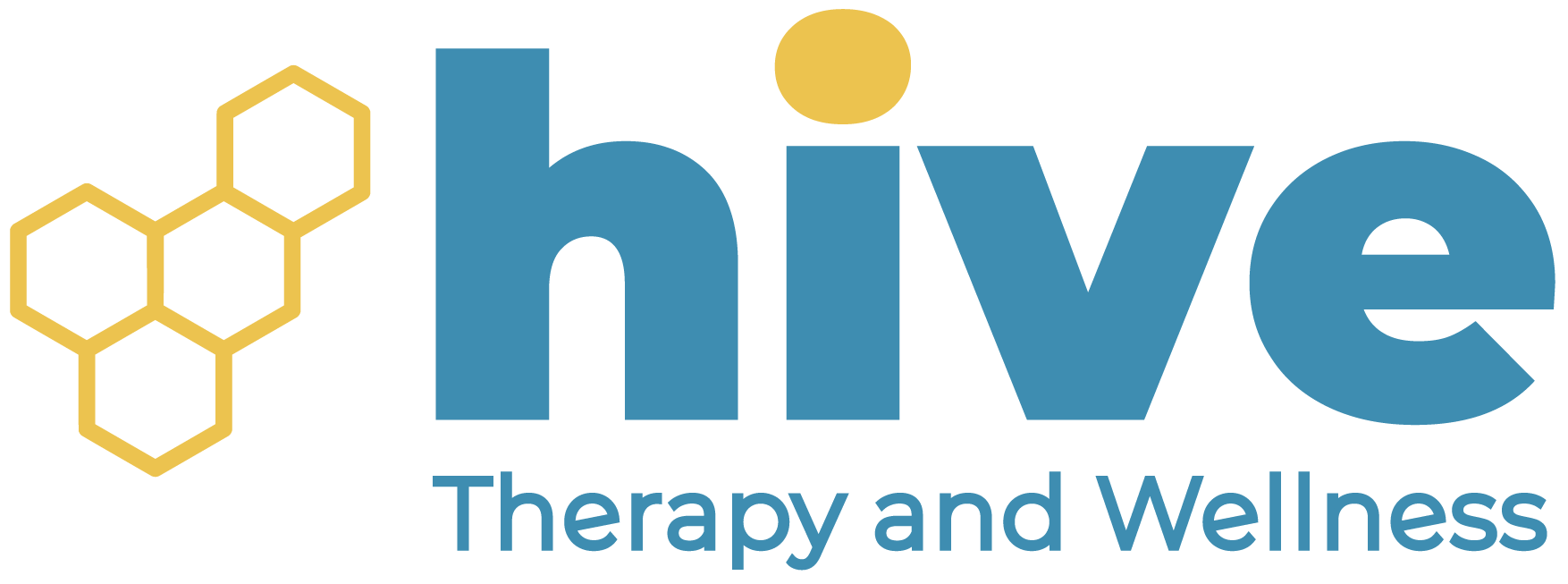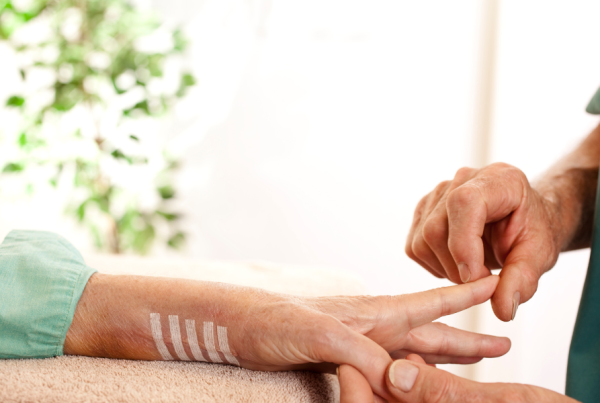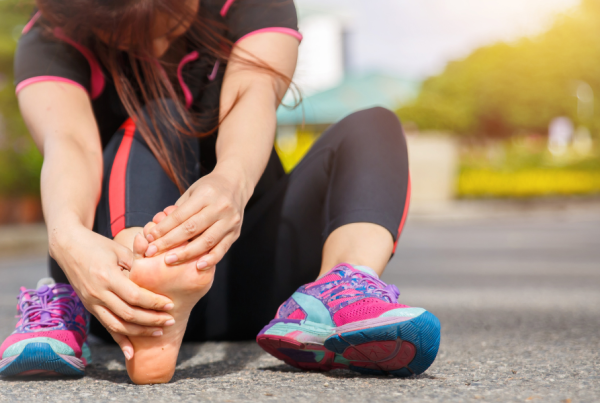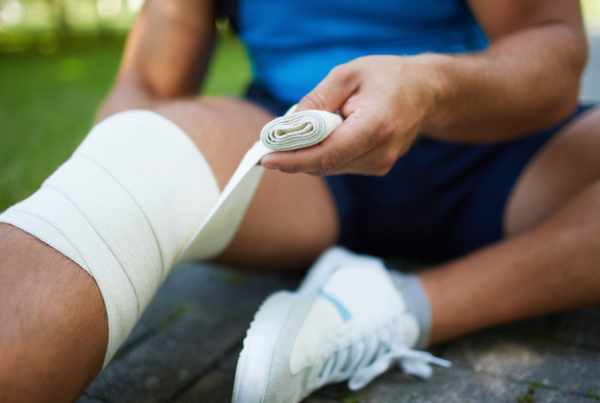Post-Concussion Rehabilitation
Move Better. Live Fuller. Your Wellness Journey Starts Here.
Schedule a FREE Discovery Call!
What Is Post-Concussion Rehabilitation?
After a concussion, individuals may experience aftereffects in the form of immediate impairments or persistent conditions, which can significantly impact their quality of life. Additionally, while not all concussions are life-threatening, concussions can become more serious if left untreated, and symptoms may last longer than expected.
Therefore, post-concussion rehabilitation is an incredibly important form of treatment that must be taken with a multidisciplinary approach—involving many professionals in the process, including physical therapists.

Symptoms experienced after a concussion can vary widely from person to person. Immediate symptoms of concussion can also differ from delayed or long-lasting symptoms. They can last anywhere from a week to several months, or even persist for over a year. Symptoms found in individuals post-concussion that can be addressed with physical therapy include:
- Headaches or migraines
- Dizziness
- Fatigue
- Blurry vision
- Difficulty sleeping
- Imbalance
- Neck injury
- And more
While this is not an exhaustive list of all possible symptoms that result from concussions, it does include common symptoms that many individuals experience after an impact to the head. Physical therapy can affect the muscles, nerves, ligaments, bones, and other important systems of the body. Therefore, it is well-suited to addressing many of the above-listed symptoms. However, other persistent symptoms should always be looked at by your primary provider in addition to physical therapy treatment.
What Causes Concussions?
Concussions are created by a forceful or sudden impact to the head, which in turn affects the brain. The act of the head or brain moving back and forth can create many different impairments or resulting symptoms. Numerous incidents can create this sort of impact to the head, such as:
- Vehicle accidents
- Sports accidents
- Falls
- Violence
- Workplace injuries
- Childhood accidents
- Hazards
- And more
No matter the cause of the injury, post-concussion rehabilitation will be necessary to ensure the patient returns to normal function and to prevent lingering symptoms.
Physical Therapy for Post-Concussion Rehabilitation
Physical therapy can greatly reduce the severity of symptoms after a concussion, promote better healing, and help reduce the longevity of certain impairments. Physical therapists are very educated and highly trained to address physical, cognitive, vestibular, and visual impairments or symptoms.
Treatment will be catered to the needs of the individual, and may change over time as the patient’s symptoms lessen or their needs change. Some techniques used by physical therapists may include some or all of the following:
- Vestibular rehabilitation: Vestibular rehabilitation is essential for regaining visual, vestibular, and proprioceptive function. Additionally, dizziness and imbalance is common after a concussion. Therefore, it is often a necessary treatment that allows the physical therapist to help the patient regain balance, prevent dizziness, and address other related symptoms, such as visual disturbances.
- Exercise prescription: Individuals may experience weakness after a concussion. To regain strength and rebuild endurance, it is important to include exercise into the care plan—at safe levels suggested by a physical therapist.
- Manual therapy / spinal manipulation: In some cases, patients who have experienced a concussion may also have effects on other parts of the body, such as the back or the neck (especially in the case of whiplash). These injuries can also worsen other symptoms from a concussion. In this case, the physical therapist may use manual therapies or joint manipulation to provide relief to these areas.
- Addressing headaches: Headaches are a common symptom caused by concussions. However, they can vary greatly from person to person. Physical therapists are skilled at determining possible causes or contributors to headaches, and addressing them safely.
- Rehabilitate Motor Function: Physical therapists can also help address important muscular functions through tasks such as therapeutic activity or neuromuscular re-education, especially for those who are expecting to return to more rigorous activities such as sports.
Working closely with a physical therapist is essential for successful post-concussion rehabilitation. Physical therapists will be able to determine the capabilities of the patient as they experience their post-concussion symptoms, and curate a care plan to match. They will then continue to mold that care plan as the patient moves through treatment, allowing them to return to daily activities slowly and safely. Moving too quickly in order to get back to vigorous activity—especially sports—can be dangerous. Therefore, it is best to work with the guidance of a professional!
While seeking physical therapy is highly recommended soon after a concussion, it is also suitable for those who are experiencing persistent symptoms some time after a concussion has already passed. Regardless of when you or a loved one have experienced a concussion, our highly trained physical therapists at Hive Therapy and Wellness will create an individualized plan of care for each unique case. To address symptoms of a concussion, Hive’s physical therapists may use a combination of the following treatments:
- Dry Needling
- Cupping
- Manual Therapy
- Spinal Manipulation
- Electrical Muscle Stimulation
- Tissue Scraping
- Exercise Prescription
- Behavioral Modifications
- Therapeutic Modalities
- Neuromuscular Re-education
- Biofeedback (part of neuromuscular)
- Therapeutic Activity
After a concussion, individuals may experience aftereffects in the form of immediate impairments or persistent conditions, which can significantly impact their quality of life.
Additionally, while not all concussions are life-threatening, concussions can become more serious if left untreated, and symptoms may last longer than expected.
Therefore, post-concussion rehabilitation is an incredibly important form of treatment that must be taken with a multidisciplinary approach—involving many professionals in the process, including physical therapists.
Symptoms experienced after a concussion can vary widely from person to person. Immediate symptoms of concussion can also differ from delayed or long-lasting symptoms. They can last anywhere from a week to several months, or even persist for over a year.
Symptoms found in individuals post-concussion that can be addressed with physical therapy include:
- Headaches or migraines
- Dizziness
- Fatigue
- Blurry vision
- Difficulty sleeping
- Imbalance
- Neck injury
- And more
Concussions are created by a forceful or sudden impact to the head, which in turn affects the brain. The act of the head or brain moving back and forth can create many different impairments or resulting symptoms. Numerous incidents can create this sort of impact to the head, such as:
- Vehicle accidents
- Sports accidents
- Falls
- Violence
- Workplace injuries
- Childhood accidents
- Hazards
- And more
No matter the cause of the injury, post-concussion rehabilitation will be necessary to ensure the patient returns to normal function and to prevent lingering symptoms.
Physical therapy can greatly reduce the severity of symptoms after a concussion, promote better healing, and help reduce the longevity of certain impairments. Physical therapists are very educated and highly trained to address physical, cognitive, vestibular, and visual impairments or symptoms.
Treatment will be catered to the needs of the individual, and may change over time as the patient’s symptoms lessen or their needs change. Some techniques used by physical therapists may include some or all of the following:
- Vestibular rehabilitation: Vestibular rehabilitation is essential for regaining visual, vestibular, and proprioceptive function. Additionally, dizziness and imbalance is common after a concussion. Therefore, it is often a necessary treatment that allows the physical therapist to help the patient regain balance, prevent dizziness, and address other related symptoms, such as visual disturbances.
- Exercise prescription: Individuals may experience weakness after a concussion. To regain strength and rebuild endurance, it is important to include exercise into the care plan—at safe levels suggested by a physical therapist.
- Manual therapy / spinal manipulation: In some cases, patients who have experienced a concussion may also have effects on other parts of the body, such as the back or the neck (especially in the case of whiplash). These injuries can also worsen other symptoms from a concussion. In this case, the physical therapist may use manual therapies or joint manipulation to provide relief to these areas.
- Addressing headaches: Headaches are a common symptom caused by concussions. However, they can vary greatly from person to person. Physical therapists are skilled at determining possible causes or contributors to headaches, and addressing them safely.
- Rehabilitate Motor Function: Physical therapists can also help address important muscular functions through tasks such as therapeutic activity or neuromuscular re-education, especially for those who are expecting to return to more rigorous activities such as sports.
Working closely with a physical therapist is essential for successful post-concussion rehabilitation. Physical therapists will be able to determine the capabilities of the patient as they experience their post-concussion symptoms, and curate a care plan to match.
They will then continue to mold that care plan as the patient moves through treatment, allowing them to return to daily activities slowly and safely. Moving too quickly in order to get back to vigorous activity—especially sports—can be dangerous. Therefore, it is best to work with the guidance of a professional!
While seeking physical therapy is highly recommended soon after a concussion, it is also suitable for those who are experiencing persistent symptoms some time after a concussion has already passed.
Regardless of when you or a loved one have experienced a concussion, our highly trained physical therapists at Hive Therapy and Wellness will create an individualized plan of care for each unique case. To address symptoms of a concussion, Hive’s physical therapists may use a combination of the following treatments:
- Dry Needling
- Cupping
- Manual Therapy
- Spinal Manipulation
- Electrical Muscle Stimulation
- Tissue Scraping
- Exercise Prescription
- Behavioral Modifications
- Therapeutic Modalities
- Neuromuscular Re-education
- Biofeedback (part of neuromuscular)
- Therapeutic Activity
You can learn more about these treatments on our Treatments Page.





